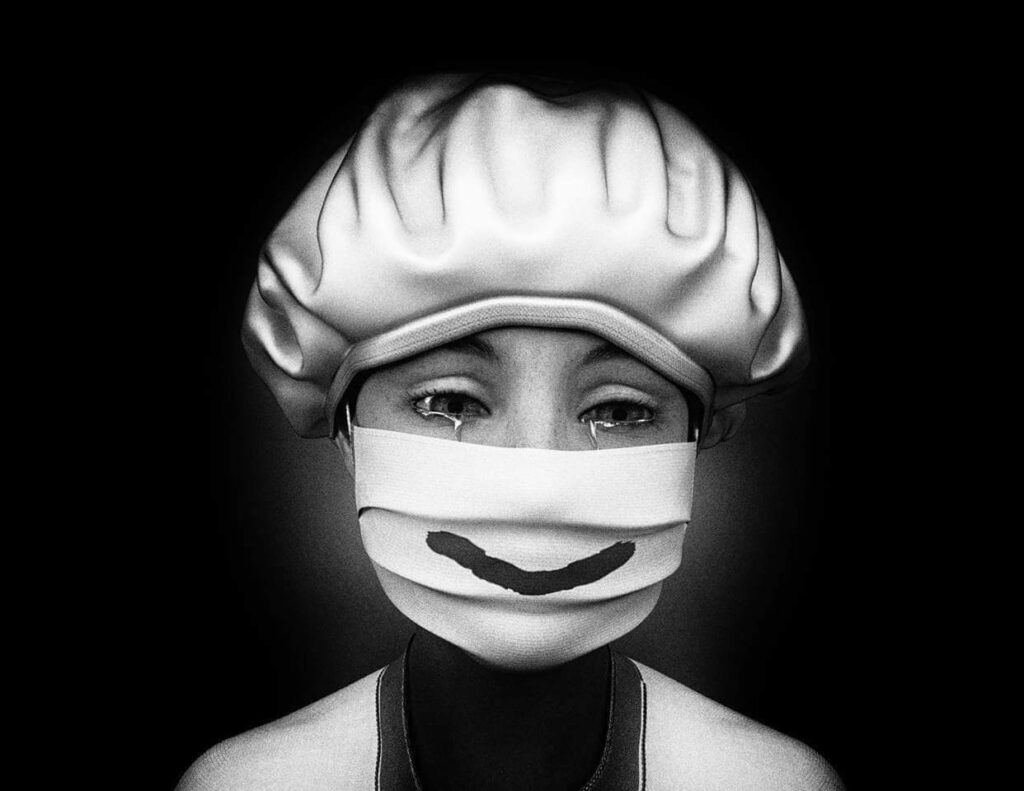Masking Duality: The Two Sides of the Mask
We are tired, we are broken, but the smile for our patients is real. Any nurse can FEEL the pain behind this art. So telling on the emotions that you do not see behind the masks. For a profession that generally wears their hearts on their sleeves, working amidst a pandemic is anything but easy.
As nurses we are taught nursing skills in school. We are taught structure. What we are not taught, is empathy, grace, caring and compassion. Those are traits that cannot be taught in any school. They are what set apart the great nurses. These traits are what makes nursing SO incredibly difficult during a time of the unknown. During a time when there are financial constraints, too many patients, too little few nurses, increased workloads, and a very restricting environment. Nurses struggle to maintain those traits despite the external situations.
This CG creation by Roland Wilhelm is everything.

I’m sure many of my non medical friends wonder what it is like working in a pandemic, when you are faced with all the unknowns, when guidelines are changed daily, and supplies are dwindling.
So many emotions.
Are we keeping our own families and friends safe, ourselves safe, our patients safe? These racing thoughts are constant. Some of us working on soaring hot days, with little air conditioning and full PPE. Gowns, gloves, masks, goggles, shields, caps. It’s crazy hot. Sometimes it’s hard to breathe, and the condensation on the shields makes it hard to see. You are so very aware of new and daily changing protocols which include changing everything between patients. Changing often means more time used, and while this is safest for the patient, your workload is not less. Distraught, is a good word to describe what it is like trying to offer the same patient care to someone during a pandemic as you would any other day.
It’s very hard.
And we can not forget the weight of emotions that run through our patients either. They are alone, unable to have family or friends with them, unfamiliar with the medical system, and the terminology. They are anxious, they are afraid, learning as they go. We are now their family and not just their nurse. We are the hand holders, the comforters, their reassurance. We do extra jobs, like finding iPads or phones to connect with families, get them letters or gifts from their loved ones, relay messages to them. We do all of this on top of everything else. It matters to them, in ways that only we can understand. We carry not only our own emotions home, but theirs as well. And somehow, despite all of this added to our plates and our minds, we still push forward, we still have empathy, grace, caring and compassion for our patients.
When you sign up to be a nurse, you are signing up to care for individuals in their worst, in their best, and everything in-between. You sign up to work within an ever changing health care system, with the potential for extreme environments, and you adapt. And at the end of the day, the most important person to a nurse, is the person who is right in front of them.
Like always, we will push through, rise up, and adapt.
Jane Walker, Registered Nurse



